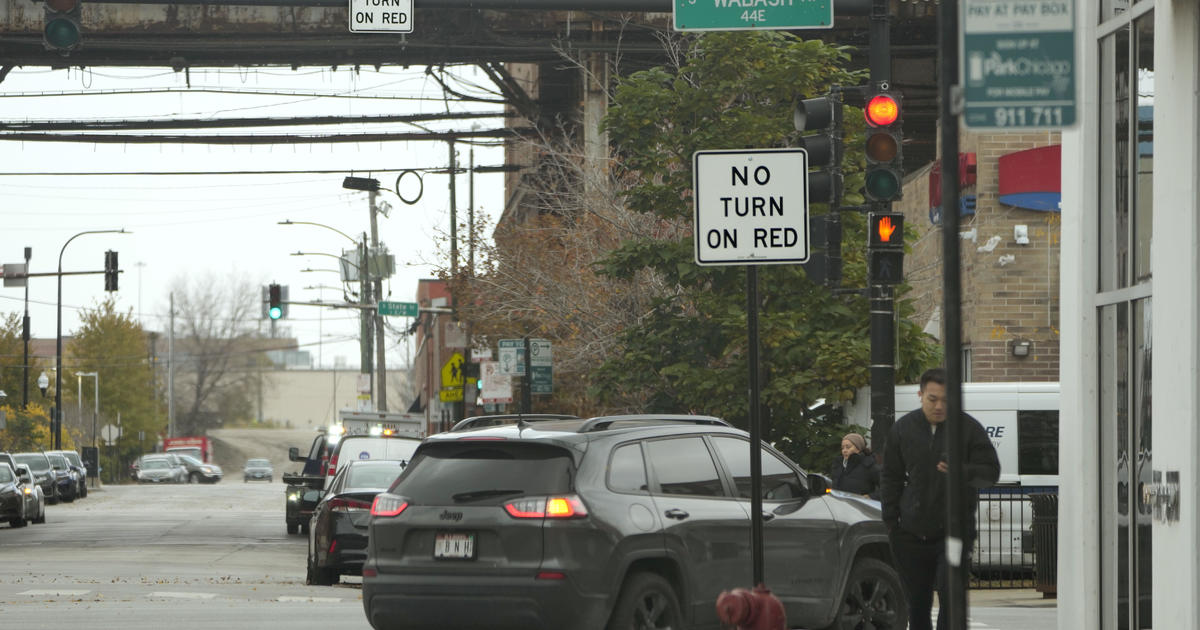Sophee Langerman was on her way to a bicycle safety rally in Chicago’s Lakeview neighborhood in June when a car turning right rolled through a red light and slammed into her bike, which she was walking off the curb and into the crosswalk.
The car was moving slowly enough that Langerman escaped serious injury, but the bicycle required extensive repairs. To Langerman, it’s another argument for ending a practice that almost all U.S. cities have embraced for decades: the legal prerogative for a driver to turn right after stopping at a red light.
A dramatic rise in accidents killing or injuring pedestrians and bicyclists has led to a myriad of policy and infrastructure changes, but moves to ban right on red have drawn some of the most intense sentiments on both sides.
Washington, D.C.'s City Council last year approved a right-on-red ban that takes effect in 2025. New Chicago Mayor Brandon Johnson’s transition plan called for “restricting right turns on red,” but his administration hasn’t provided specifics. The college town of Ann Arbor, Michigan, now prohibits right turns at red lights in the downtown area.



I mean, that’s a large part of why it’s illegal to ride a bike on the sidewalk and every major bicycle safety advocacy group says to take to the road. It’s pretty well understood that riding on the sidewalk is incredibly dangerous because it’s very difficult to see a fast moving bike when it’s off the road.
If it wasn’t a turn on red it would have been someone turning right into a driveway eventually.
Yes this is exactly what you should be doing as a cyclist if you want to be safe and seen. If there isn’t a bike lane you take the entire lane like a car. I have ridden many thousands of miles like this. Even when there is a bike lane it’s often the safest option if the bike lane is in poor condition.
The reason I advocate so hard for dedicated infrastructure is because I want to see more people biking and many people have a hard time feeling comfortable riding in the street. I get that. But in this case it’s the fault of the cyclist for failing to follow the rules of the road.